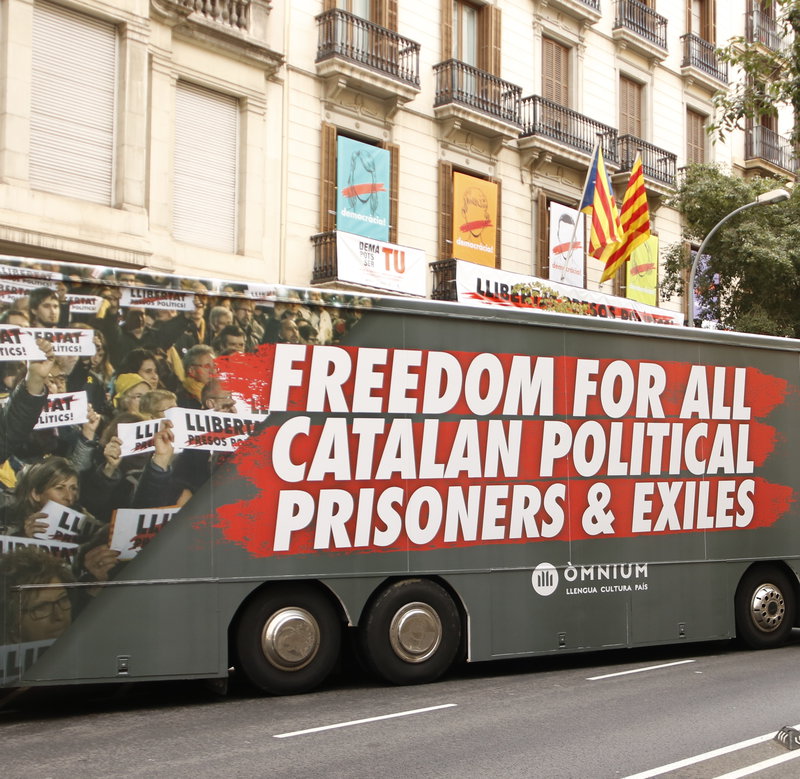Obstacles to a solution
The no confidence vote that made Socialist leader, Pedro Sánchez, president of the Spanish government has created expectations of progress in the Catalonia-Spain conflict. Yet, readers should know that the solution is still far away.
Catalan aspirations question the foundations of the Spanish state: a monarchy never explicitly ratified and inherited from the Franco regime, the “unbreakable” unity of Spain, and a conservative vision of the rule of law dominated by judicial power, occupied by judges related to a political right lacking values in line with the social reality of the 21st century. All of these issues closely related to one another. But among them, the real Gordian knot is the right to self-determination.
Carlos Lesmes, President of the General Council of the Judiciary and the Supreme Court, the judiciary’s highest authority, said that the “indissoluble” unity of the Spanish Nation proclaimed in Article 2 of the Constitution is a “legal mandate that corresponds to guaranteeing Judicial Power” (September 5, 2017). This excluding idea explains how the judiciary’s top leadership is acting against the imprisoned or exiled Catalan pro-independence leaders and against the independence movement as a whole (938 indicted). Preserving the unity of Spain justifies everything (human rights violations, fake information and accusations, repression…). By the way, Lesmes was a senior official of the PP government during the period of former PM, José María Aznar.
The absolute primacy of the concept of the indissoluble unity of Spain is shared by all the powers of the Spanish state (legislative, executive and judiciary). This is especially true since the king’s speech on October 3, whose practical meaning was a kind of “free-for-all” against the independence movement. That concept prevails over any democratic value that is invoked, and also conditions interpretations of laws. The same thing happens with all the other factual powers that make up the base of political power (high officials, police, Spanish media, army) and, last but not least, also the largest economic groups that have grown up under the protective umbrella of the political decisions of the last 40 years. Few are the voices in Spain that dare to argue that the only democratic solution is to consult the Catalans. None of those few voices are in the PSOE (the Catalan Socialists who defended it had to leave the party). At most, the PSOE can only try to put forward some proposals that put out fires before new ones appear; for example when the trials against the independence leaders begin and extreme sentences are requested.
Similar problems in other democratic countries have been resolved simply by appealing to democratic values. This is the case of the United Kingdom (with Scotland) or Canada (with Quebec). For the reasons stated, that is impossible in Spain. Appeals to the human rights of the peoples contained in Art. 1.2 of the Charter of the United Nations, in Art. 1 (1) (3) of the International Covenant on Civil and Political Rights, and Art. 1 (1) (3) of the International Covenant on Economic, Social and Cultural Rights, are being ignored in spite of Art. 96 of the Spanish Constitution, which proclaims “validly concluded international treaties, once officially published in Spain, will be part of the internal order.” All of these treaties have been ratified by Spain.
All this explains why the descriptions of the facts underlying the crimes accusing Catalan politicians are forced. It even exposes the manifest falsehoods against them, as demonstrated by a recent documentary on Catalan TV that has been simply ignored by the rest of Spanish television. And, finally, it is what also ensures that the future trials to which they will be subjected will be mainly political.

